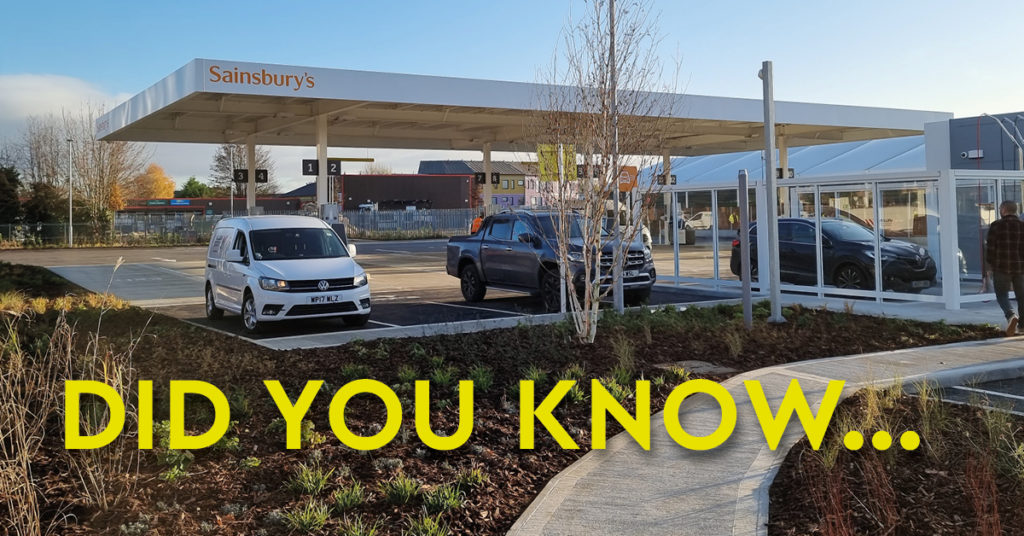
When you head to a fuel station to fill up your car, you always take some precautions. You can’t smoke, or wave a candle around. Making sparks of any kind is similarly frowned upon. It’s all to do with what every fuel station mainly stores; petrol and diesel. As 1 litre of petrol has the explosive power of nearly 6Kg of TNT – way more than needed to blow the bloody doors off – you can see why fuel stations are heavily regulated for safety.
And yet, how many of us even think twice about it? We have all grown up surrounded by cars and the familiar sight of fuels stations on our roads. It’s an ingrained part of the built environment we all live in. From a very early age we all know to not put ourselves at risk when we are in a fuel station. Combined with the detailed safety legislation in place, it means the safety record of fuel stations in the UK is extremely good.
Fuel stations are big users of signage. Totems stand outside with branding and pricing, there is canopy signage and the shop frontage will also be adorned with often full-width signs. Most will be illuminated to attract customers during the long opening hours fuel stations typically operate. And as we commonly perceive a fuel station with no lit signs to be closed, it’s vital there are no issues affecting their performance.
Sounds straightforward enough of course. But signage maintenance at a fuel station is subject to the same stringent safety standards as any other part of the operation. It’s with good reason too; a sign which falls down could sever electrical connections, creating sparks from live wiring. Similarly, poor or no electrical maintenance could result in dangerous lighting systems which would put everyone present at high risk of serious injury should a spark be caught by petrol fumes.
All this means any operator of a fuel station needs to be especially careful when looking for a maintenance services provider. A basic knowledge of health & safety requirements simply isn’t good enough – they must have more in-depth training, typically a SPA accreditation, which gives them specific skills to know who to approach any work at a fuel station safely. In addition, the use of platforms to access canopies or totems, must be undertaken only by someone who is IPAF certified.
For a fuel station operator, choosing a signage maintenance services provider is easy. Cygnia has the largest team of engineers across the UK with the extensive training and certification required to maintain signage at fuels stations safely. So if you re a fuels station owner or operator, contact Cygnia to discuss your signage maintenance schedule – and get your signage looked after by qualified experts.